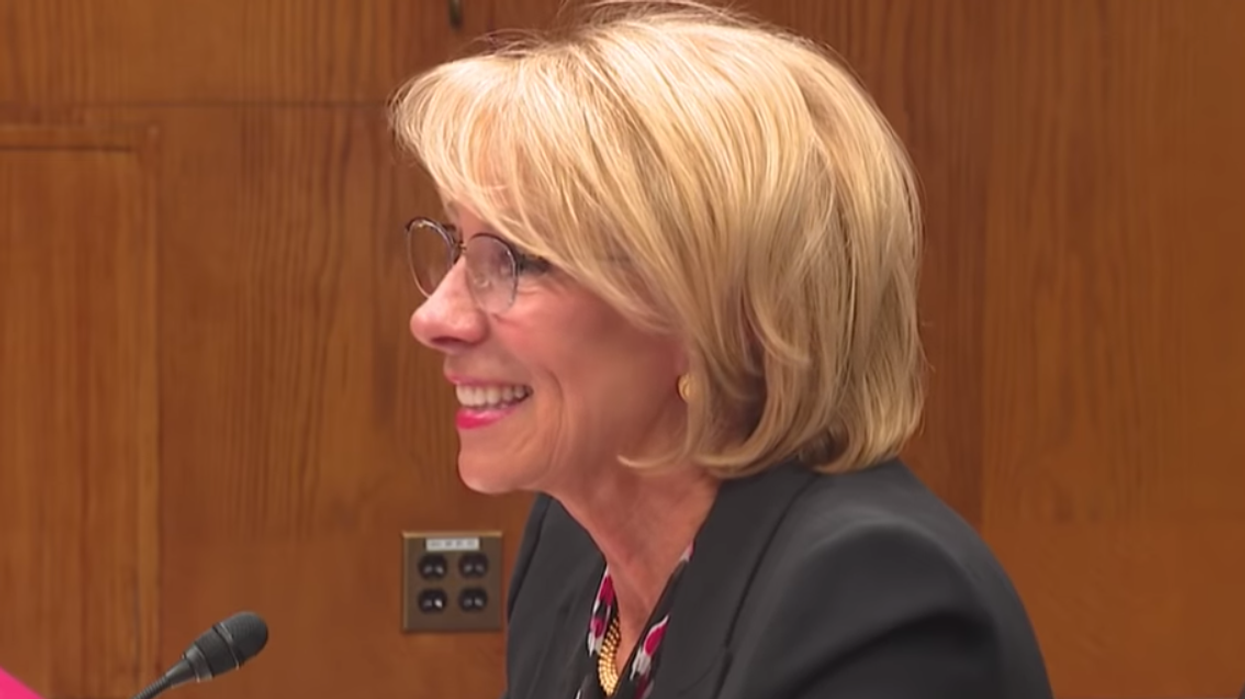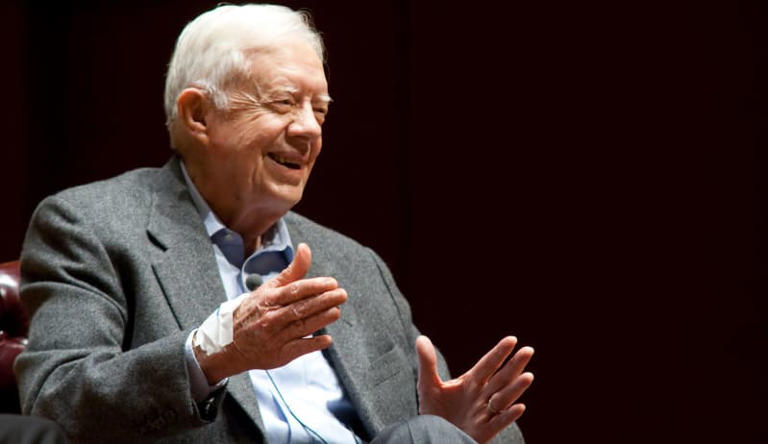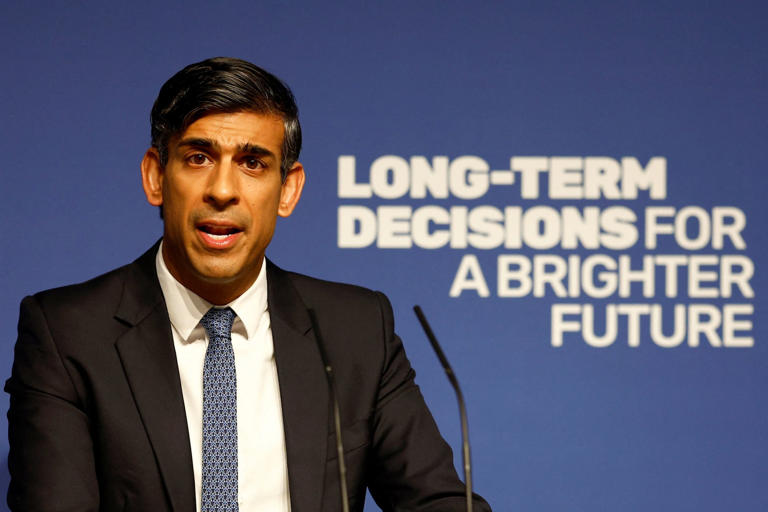
https://www.maxpixel.net/Political-Banner-Israel-Protest-Demonstration-Sign-519817
Raz Segal, an Israeli expert in modern genocide, calls Israel’s assault on Gaza a textbook case of “intent to commit genocide” and its rationalization of its violence a “shameful use” of the lessons of the Holocaust. Israeli state exceptionalism and comparisons of its Palestinians victims to “Nazis” are used to “justify, rationalize, deny, distort, disavow mass violence against Palestinians,” says Segal.
This is a rush transcript. Copy may not be in its final form.
AMY GOODMAN: This is Democracy Now!, democracynow.org, The War and Peace Report. I’m Amy Goodman.
“A Textbook Case of Genocide: Israel has been explicit about what it’s carrying out in Gaza. Why isn’t the world listening?” That’s the headline of a new piece in Jewish Currents by our next guest, Raz Segal. He’s an Israeli historian, associate professor of Holocaust and genocide studies at Stockton University, where he’s also an endowed professor in the study of modern genocide. Raz Segal joins us now from Philadelphia.
Professor Segal, welcome to Democracy Now! Lay out your case.
RAZ SEGAL: Thank you for having me.
I think that, indeed, what we’re seeing now in Gaza is a case of genocide. We have to understand that the U.N. Convention on the Prevention and Punishment of the Crime of Genocide from 1948 requires that we see special intent for genocide to happen. And to quote the convention, intent to destroy a group is defined as racial, ethnic, religious or national as such that is collectively, not just individuals. And this intent, as we just heard, is on full display by Israeli politicians and army officers since 7th of October. We heard Israel’s president. It’s well-known what the Defense Minister Yoav Gallant said on 9th of October declaring a complete siege on Gaza, cutting off water, food, fuel, stating that “We’re fighting human animals,” and we will react “accordingly.” He also said that “We will eliminate everything.” We know that Israeli army spokesperson Daniel Hagari, for example, acknowledged wanton destruction and said explicitly, “The emphasis on damage and not on accuracy.” So we’re seeing the special intent on full display. And really, I have to say, if this is not special intent to commit genocide, I really don’t know what is.
So, when we look at the actions taken, the dropping of thousands and thousands of bombs in a couple of days, including phosphorus bombs, as we heard, on one of the most densely populated areas around the world, together with these proclamations of intent, this indeed constitutes genocidal killing, which is the first act, according to the convention, of genocide. And Israel, I must say, is also perpetrating act number two and three — that is, causing serious bodily or mental harm, and creating condition designed to bring about the destruction of the group by cutting off water, food, supply of energy, bombing hospitals, ordering the fast evictions of hospitals, which the World Health Organization has declared to be, quote, “a death sentence.” So, we’re seeing the combination of genocidal acts with special intent. This is indeed a textbook case of genocide.
AMY GOODMAN: Can you talk about the displacement? Israel is saying that the entire northern Gaza — now hundreds of thousands of people have complied — must move south. The northern part of Gaza is the most populated, with Gaza City.
RAZ SEGAL: Yeah, definitely. I mean, as is well known, this is an impossible order. It’s impossible for specific groups of people — people in hospitals, people defined as disabled, elderly people — many Palestinians who refuse to leave their homes because of their histories and their memories of the Nakba. This is an impossible order. It’s yet another indication of the intent to destroy, the intent to commit genocide.
It’s also worthwhile to emphasize Defense Minister Yoav Gallant, a new term that he coined, “complete siege.” It seems like a completely new term that really takes what was already a 17-year siege on Gaza, the longest in modern history, which was already a clear violation of international humanitarian law — it takes this siege and now turns it into a complete siege, which really signals the turn to this kind of genocidal destruction that we’re seeing, including with this eviction order.
It’s also worthwhile to try to explain, I think, why Israel is so explicit in its declaration. We’ve heard Israel’s president talk about evil. We’ve also heard about Biden’s use of the word “evil.” EU leaders describe the Hamas attack as “evil.” And it has to be said, the Hamas attack were clear war crimes, the mass murder of more than 1,000 Israeli civilians, a horrendous war crime that rightfully shocked many Israelis and many, many people around the world. But “evil” is not a term to describe them. “Evil” is a term to decontextualize. “Evil” is a term to demonize and to really enhance the widespread fantasies of Israelis today that they’re fighting Nazis. Actually, former Prime Minister Bennett, Naftali Bennett, said that directly in an interview yesterday: “We are fighting Nazis.” We see this and many, many other indications in Israeli society and politics today. And if we’re fighting Nazis, then everything is permissible.
AMY GOODMAN: Professor Segal —
RAZ SEGAL: No law —
AMY GOODMAN: I actually wanted to go to the former prime minister, Naftali Bennett, who’s currently in the Israeli army. This is from a few days ago, where he exploded at the Sky News anchor Kamali Melbourne during an interview Thursday, when Melbourne pressed him on Israel’s attacks on Palestinian civilians. This is a part of what he said.
KAMALI MELBOURNE: What about those Palestinians in hospital who are on life support and babies in incubators, whose life support and incubator will have to be turned off because the Israelis have cut the power to Gaza?
NAFTALI BENNETT: Are you seriously keep on asking me about Palestinian civilians? What’s — what’s wrong with you? Have you not seen what happened? We’re fighting Nazis. We don’t target them. Now, the world can come and bring them anything they want, if you want to bring them electricity. I’m not going to feed electricity or water to my enemies. If anyone else wants, that’s fine. We’re not responsible for them.
KAMALI MELBOURNE: But this is the point —
NAFTALI BENNETT: But you keep on —
KAMALI MELBOURNE: This is the point —
NAFTALI BENNETT: You — I want to tell you —
KAMALI MELBOURNE: No, no, Mr. Bennett, this is the point.
NAFTALI BENNETT: No. No, listen.
KAMALI MELBOURNE: Listen.
NAFTALI BENNETT: You listen to me right now.
KAMALI MELBOURNE: No, you’re raising your voice. And we’re trying —
NAFTALI BENNETT: I’ve heard you enough.
KAMALI MELBOURNE: No, no, I understand. We’re trying to have a conversation here.
NAFTALI BENNETT: I’ve heard a lot of you.
KAMALI MELBOURNE: Listen, this is my program.
NAFTALI BENNETT: No, you’re not having a —
KAMALI MELBOURNE: This is my show.
NAFTALI BENNETT: And that’s exactly —
KAMALI MELBOURNE: And I am asking the questions. You’re raising your voice.
NAFTALI BENNETT: But it’s my country.
KAMALI MELBOURNE: And I’ve asked you. And we’ve already —
NAFTALI BENNETT: And when people — when people —
KAMALI MELBOURNE: We’ve already — stop, please.
NAFTALI BENNETT: When people —
KAMALI MELBOURNE: And let me finish. We’ve already distinguished —
NAFTALI BENNETT: Shame on you, Mister.
KAMALI MELBOURNE: — between Hamas —
NAFTALI BENNETT: I want to tell you, you — shame on you.
KAMALI MELBOURNE: You’re trying to speak over me.
NAFTALI BENNETT: Because we are not —
KAMALI MELBOURNE: No, no.
NAFTALI BENNETT: Shame on you.
KAMALI MELBOURNE: It’s nothing about shame.
NAFTALI BENNETT: I am the — I was the prime minister.
KAMALI MELBOURNE: We’re trying to have a conversation —
NAFTALI BENNETT: There is absolutely shame.
KAMALI MELBOURNE: — about a very serious situation here.
NAFTALI BENNETT: Because when you just jump —
KAMALI MELBOURNE: And you are refusing to address it.
AMY GOODMAN: So, that is the former Israeli prime minister, Naftali Bennett, exploding at the Sky News anchor Kamali Melbourne. Professor Segal, you’re an Israeli historian. This is what you’re talking about, when he uses the Nazi analogy and also when he says, “Are you seriously talking about Palestinian civilians?” Your response?
RAZ SEGAL: That’s exactly what we’re — it’s very important to understand this context, the idea of fighting Nazis, the idea of using Holocaust memory in this way. There is a broad context, a long history, of course, of this shameful use of Holocaust memory, which Israeli politicians have used to justify, rationalize, deny, distort, disavow mass violence against Palestinians. And it has allowed also a view to develop that sees Israel as somehow exceptional, providing it impunity. The truth, however, is that all perpetrators of genocide actually see their victims as dangerous, as vicious, as inhuman, right? That’s how the Nazis saw the Jews. And that’s how today Israelis see Palestinians.
And that’s why the lessons of the Holocaust, actually, which were never meant to provide cover and rationalize state violence and genocide, but, rather, protect groups, especially stateless and defenseless groups, groups under military occupation and siege, from violent states — the lessons of the Holocaust are now very, very urgent. We need to center the voices of those facing state violence and genocide, and we need to move to prevention as fast as possible. In order to do that, we need to recognize what’s going on around us, what’s unfolding in front of our eyes, which is really a textbook case of genocide, with the rhetoric, with the actions, with everything involved.
AMY GOODMAN: Raz Segal is associate professor of Holocaust and genocide studies at Stockton University and the endowed professor in the study of modern genocide. He is an Israeli historian. His new article for Jewish Currents, we’ll link to, “A Textbook Case of Genocide.” The subtitle, “Israel has been explicit about what it’s carrying out in Gaza. Why isn’t the world listening?” Back in 30 seconds.














